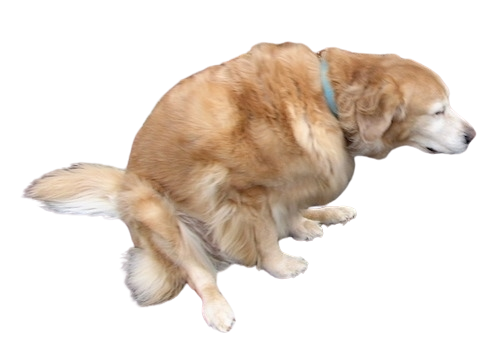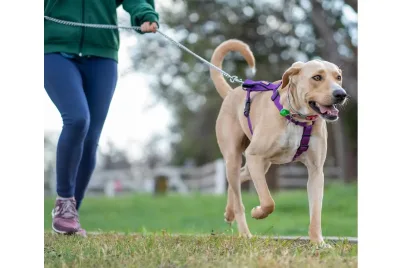Effective Home Remedies for Dog Scooting Woes
I’ve encountered my fair share of canine quirks and concerns as a devoted dog parent and enthusiast. One such behavior that often leaves dog owners both puzzled and concerned is the phenomenon known as “dog scooting”. If you’ve ever wondered why your furry friend seems to be dragging their bottom along the floor, you’re not alone. While it may seem comical at first glance, this behavior is often a sign that something isn’t quite right with your canine companion. In this article, we’ll do more than scrape the surface of dog scooting. Let’s bore into understanding the underlying causes and explore simple yet effective home remedies for dog scooting.
What is dog scooting?
Dog scooting, also known as butt scooting or dragging, is a behavior where a dog drags its hindquarters across the ground. It’s not only awkward to witness but also a clear indication that your dog is experiencing some form of discomfort or irritation in their rear end. There can be many causes of irritation to the anal or perianal area in dogs. As a responsible dog parent, it’s essential to understand the reasons behind this behavior and how to address it effectively.
Common Causes of Dog Scooting
There can be several reasons behind your dog’s scooting antics. Understanding these potential causes is crucial for effectively addressing the issue, especially when home remedies for dog scooting are used. Several underlying issues can lead to dog scooting, let’s explore some of the most common causes.
- Anal Gland Issues
One of the most common reasons for butt scooting is discomfort in the anal glands. These small sacs, located on either side of the anus, can become impacted or infected. This can cause your dog significant discomfort and scooting is their way of trying to relieve this discomfort and irritation.
- Allergies
Allergies, whether food allergies or environmental allergens, can lead to skin irritation and itchy skin. Dogs may scoot in an attempt to scratch the itch and find relief of their discomfort.
- Skin Irritations
Any irritation or inflammation in the perianal area, such as rashes or sores, can cause discomfort and lead to scooting. This is your dogs’ way of trying to scratch that itch and find relief.
- Parasites
Internal parasites like worms or external parasites like fleas can irritate the anal area. This prompts scooting behavior as a form of relief. Regular parasite control is essential to prevent this issue.
- Infections
Infections, whether bacterial or yeast-based, can develop in the anal region. The resulting discomfort may trigger scooting as your dog attempts to soothe the area.
Recognizing the Signs
Understanding your dog’s behavior and recognizing the signs of scooting is essential. Some dogs may exhibit behavioral cues, such as excessive licking in the anal area near and under their tail or dragging themselves on the floor. Additionally, physical symptoms like redness, swelling, or visible signs of pain can indicate a scooting problem.
When to Seek Veterinary Assistance
If your dog’s scooting persists or is accompanied by concerning symptoms like blood in the stool, unusual discharge, excessive licking or biting, or visible signs of pain, it’s essential to consult your veterinarian. These could be signs of more serious underlying issues that require professional attention.
Why Home Remedies for Dog Scooting Matter
While it’s crucial to consult your veterinarian for persistent scooting or concerning symptoms, home remedies for dog scooting can be valuable in providing immediate relief and preventing future occurrences. Here are 7 simple yet effective home remedies for dog scooting that can make a significant difference for your furry companion.
Home Remedies for Dog Scooting: A Pet Parent’s Guide
1. Regular cleaning
One of the simplest yet most effective remedies is regular cleaning of your dog’s anal area. Keeping your dog’s perianal area clean is essential. Gently clean the area with pet-safe wipes to remove any debris or substances causing irritation.
2. Dietary Adjustments
Consider your dog’s diet, as food allergies can contribute to scooting. Some dogs may benefit from dietary changes. Switching to hypoallergenic or limited-ingredient diets can help address potential dietary triggers or potential food allergies.
3. Fiber Supplements
Adding a fiber supplement to your dog’s diet can promote regular bowel movements, potentially preventing anal gland issues. Consult your vet for the appropriate dosage.
4. Probiotics
Probiotics can help maintain a healthy balance of gut bacteria, which can positively impact your dog’s overall health, including their anal glands.
5. Cool Compresses
If your dog’s scooting is due to irritation or inflammation, applying a cool compress to the area can provide relief.
6. Hygiene Practices
Maintaining good hygiene practices, such as regular bathing and anal area cleaning, can help prevent discomfort and irritation.
7. Avoiding Irritants
Identify and eliminate potential irritants in your dog’s environment, such as harsh cleaning products or allergenic materials.
Regular Vet Checkups
Schedule regular checkups with your veterinarian to monitor your dog’s anal gland health and address any concerns promptly. If your dog’s scooting continues or worsens consult your veterinarian before attempting any home remedies for dog scooting.
Conclusion
As a dog parent, your primary concern is the well-being and comfort of your furry companion. While dog scooting can be a peculiar and somewhat amusing behavior, it’s essential to recognize that it often signals underlying discomfort or irritation. By understanding the common causes and implementing these home remedies for dog scooting, you can help alleviate your dog’s discomfort and ensure their continued health, happiness and overall well-being.
FAQs
Q1.: How can I tell if my dog’s scooting is due to anal gland issues?
A: If your dog scoots frequently, has difficulty defecating, or displays signs of pain during bowel movements, it could indicate anal gland problems. Consult your vet for an examination and proper diagnosis.
Q2.: Can I use over-the-counter creams on my dog’s irritated skin?
A: Consult your vet for a comprehensive solution. Over-the-counter creams may provide temporary relief, but it’s crucial to determine and address the underlying cause of the irritation. It’s best to consult your veterinarian before using any creams on your dog’s skin, as some products may be harmful or ineffective.
Q3.: What dietary changes can help prevent dog scooting?
A: Consider switching to hypoallergenic or limited-ingredient diets to address potential food allergies. Consult your vet for dietary recommendations tailored to your dog’s needs.
Q4.: How often should I clean my dog’s anal area?
A: Regular cleaning is essential. However, the frequency may vary depending on your dog’s needs. Consult your vet for specific guidance.
Q5.: Can stress cause a dog to scoot?
A: Yes, stress or anxiety can contribute to scooting behavior in some dogs. Addressing the underlying stressors can help alleviate this issue.




